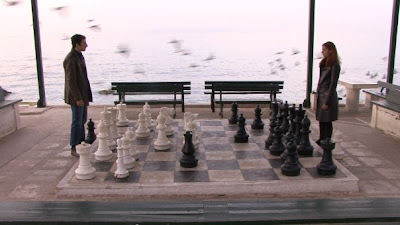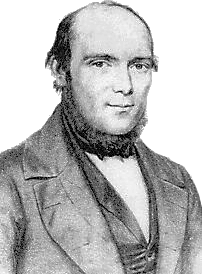ENDGAME: Bobby Fischer’s Remarkable Rise And Fall
By Frank Brady
Published by Constable (UK, 2011) Frank Brady is perhaps uniquely placed to write with skill and authority about the enigmatic and controversial 11th World Chess Champion, Bobby Fischer. Brady had a close personal connection to Fischer, having first met the future world champion when he was a teen and Bobby still a child.
Frank Brady is perhaps uniquely placed to write with skill and authority about the enigmatic and controversial 11th World Chess Champion, Bobby Fischer. Brady had a close personal connection to Fischer, having first met the future world champion when he was a teen and Bobby still a child.
Nine years his senior, Brady remained good friends with Fischer for many years until he, like many others, fell out of favour with the temperamental chess genius.
Brady was the founding editor of Chess Life magazine, is a qualified International Arbiter, and is the current president of the Marshall Chess Club. He is a also professor of journalism at St. John’s University in New York and has authored many biographies, including an earlier biography of Fischer, Profile of a Prodigy (1969).
Brady’s research skills and personal knowledge of his subject are valuable assets, and he states his objective clearly at the outset, explicitly setting out to answer the question, “What was Bobby Fischer really like?”.
Ultimately Brady largely succeeds in answering this question, but in doing so merely raises the real question of why Fischer was like he was. It is the “why?” question that looms large throughout the book, and is mostly left for the reader to consider. Brady usually confines himself to facts and anecdotes (which are fascinating in themselves), only occasionally speculating on Fischer’s motivations. For the most part Brady abstains from voicing his personal opinions.
It’s not just Brady’s opinions that are absent, but Brady himself. This is a deliberate approach from the author who writes in the introduction, “(this) book is not in any way my memoir, and I’ve tried to remain invisible as much as possible.” One cannot help but wonder more about Brady’s relationship with Fischer, and whether his decision to absent himself from the narrative might have devalued the early chapters of the book.
Frank Brady (photo by Andrew Schwartz)

Despite this, the portrait Brady paints of Fischer is detailed, personal and compelling. Fischer’s unsettled childhood set a pattern that would find echoes in the itinerant lifestyle of his later years. However, Brady disagrees with other writers who have suggested that Regina Fischer neglected her son, arguing that despite her frequent absences she loved him deeply, and cared for him thoughtfully; mother and son remained in regular contact throughout her life.
Concerned at the young Bobby’s preoccupation with chess, Regina tried unsuccessfully to broaden his interests. But Bobby’s obsession with chess grew with his obvious talent, especially after he was admitted to the Manhattan Chess Club.
With her conspicuous left-wing sympathies, Regina was under investigation by the FBI during the infamous McCarthy era, and Brady reveals how Regina trained Bobby to repeat the phrase “I have nothing to say to you” in the event that government investigators approached him. Bobby never faced questioning, but it’s not hard to imagine the effect of such instruction on his young mind.
Regina Fischer (photo, Wikipedia) "my mother is a professional protestor" said Bobby's sister Joan

Brady’s earlier biography Profile of a Prodigy drew some criticism for glossing over Fischer’s anti-Semitic remarks, but this side of Fischer came to dominate his worldview in later years, and this time Endgame does not flinch from examining this deeply disturbing aspect of his character.
Yet Fischer tended to apply his anti-Semitic views only at an impersonal level of global world conspiracies, not to his personal day-to-day relationships. He was capable of very cordial relationships with Jewish friends. He stayed with the Polgar family in Hungary for an extended period in 1993, and often visited Andor Lilienthal and his wife around the same time.
When Lilienthal countered Bobby’s hateful opinions by explaining that he was a Jew, Bobby replied “You are a good man, a good person, so you are not a Jew”. Bobby seemed to use the racial epithet as an all-purpose term of abuse for anyone who upset him, not as a literal description.
Susan Polgar playing Fischer Random Chess (Chess960) against Bobby Fischer

The 1972 match against Boris Spassky is duly allotted a whole chapter, but so much has been said about the occasion that Brady has little new to add to the chorus. A reader more interested in that famous match might be better served by reading “Bobby Fischer Goes To War” (Edmonds & Eidinow, 2004), where it is examined in almost forensic detail.
After becoming the world chess champion Fischer slipped from public view, and Brady reports how Fischer became a voracious reader, especially of philosophical and religious works. Having missed out to a large extent on a conventional education as a child, Bobby yearned to know more about the world. However, his confused religious beliefs and often dubious choice of reading material ultimately only served to accentuate his extreme views.
Following the lucrative return match with Spassky in war-torn Yugoslavia in defiance of international sanctions, the US government issued a warrant for Fischer’s arrest. Fischer nevertheless travelled unmolested around the world for many years thereafter, especially between Japan and the Philippines. Only when he crudely celebrated the 9/11 attacks on America in a radio interview was the US government spurred into real action against him, revoking his US passport.
Fischer's wife Miyoko Watai and his 1972 bodyguard Saemi Palsson with Fischer's Icelandic passport

Brady travelled to Iceland to conduct research about the last few years of Fischer’s life, spent trapped as a wanted fugitive in the only country that would accept him. To the end, Fischer was suspicious and fearful, refusing the medical treatment that would have extended his life beyond the mathematically apt 64-year time span that he attained.
I came away from this biography feeling sorry for Fischer, and deeply moved by his story in spite of the repugnant opinions he held and the appalling manner in which he treated many of those who offered him friendship. He wasted much of the latter half of his life, becoming a pitiful figure far removed from the young Brooklyn boy he once was, full of hope and ambition.
Fischer clearly had delusions of persecution, perhaps to the point of outright paranoia. Although it should be noted that Brady quotes the qualified psychiatrist Dr Magnus Skulasson, who spent time with the mortally ill Fischer, as saying “he definitely was not schizophrenic”.
Bobby Fischer in 2005 © Rax: Ragnar Axelsson

The biography assumes no knowledge of chess from the reader, yet is full of fascinating tidbits for the specialist audience. I would warmly recommend it for anyone who wants to know more about what Bobby Fischer was really like. Frank Brady has achieved his goal.


 The official "Elo" rating system, named after it's inventor, the Hungarian professor
The official "Elo" rating system, named after it's inventor, the Hungarian professor 

